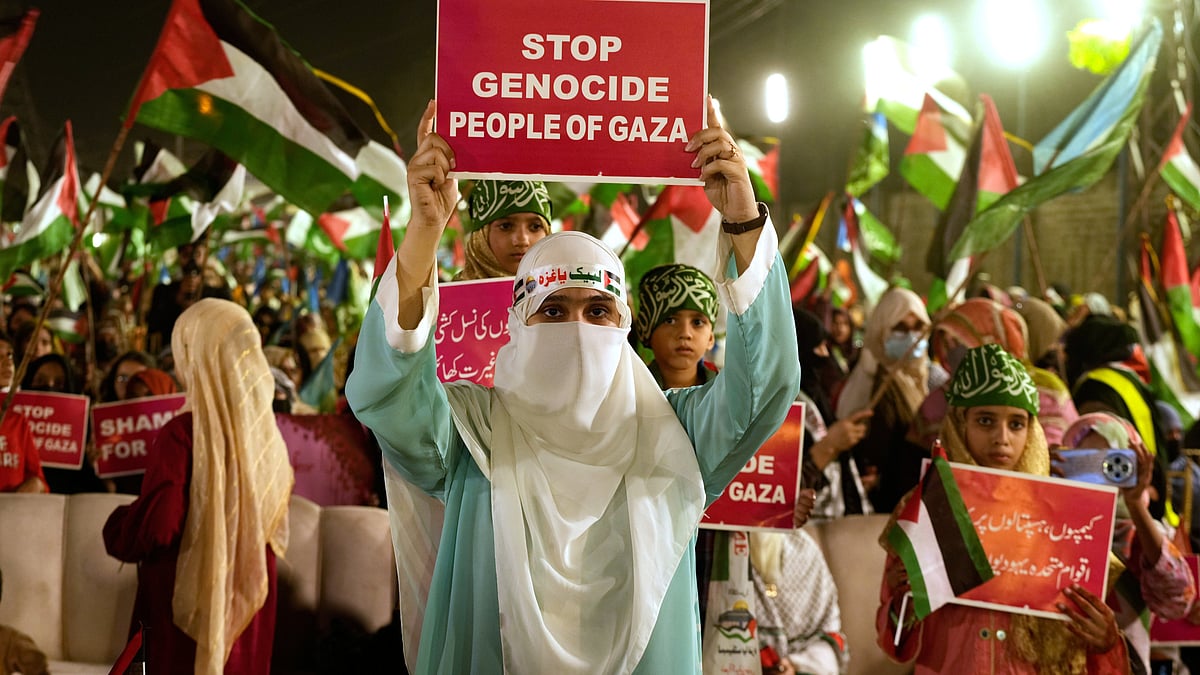World
Gaza women face exploitation amid growing humanitarian crisis
Hunger and desperation force impossible choices, particularly for women struggling to provide for their families

As the humanitarian crisis in Gaza deepens, a shadow of suffering has fallen on the women of the enclave. Some say they have been exploited by local men, including those connected to aid organisations, who promised food, water, money, supplies, or work in exchange for sexual favours.
Six women shared their harrowing experiences with The Associated Press, speaking in whispers and under the veil of anonymity — fearful of retaliation from their families, the men involved, or the rigid societal norms that brand such matters taboo.
In some cases, the harassment was chillingly direct. One woman recalled being told, “Let me touch you.” At other times, the proposals were veiled in cultural language: “I want to marry you,” or “Let’s go somewhere together.”
Aid groups and experts note that exploitation flourishes in times of desperation, particularly when people are displaced and reliant on assistance. Similar patterns have been seen in crises across South Sudan, Burkina Faso, Congo, Chad, and Haiti. Heather Barr of Human Rights Watch reflected on the tragedy: “It’s a horrible reality that humanitarian crises make people vulnerable in many ways — increased sexual violence is often a consequence. The situation in Gaza today is unspeakable, especially for women and girls.”
Published: undefined
Local psychologists treating women in Gaza describe dozens of cases where men preyed on vulnerability, sometimes leading to pregnancies. They spoke under strict anonymity, mindful of the cultural weight surrounding sexual misconduct. The women themselves rarely speak publicly, fearful of shame and reprisal.
Some of the women who spoke to AP resisted the men’s advances, while others reluctantly complied, caught in impossible circumstances. Aid groups including the Women’s Affairs Center and the Protection from Sexual Exploitation and Abuse (PSEA) network confirmed awareness of abuse linked to humanitarian assistance.
The context of Gaza — nearly two years of war, displacement of 90 per cent of the population, and restricted aid access — has exacerbated vulnerabilities. Hunger and desperation force impossible choices, particularly for women struggling to provide for their families. Amal Syam of the Women’s Affairs Center said bluntly: “Israel’s siege on the Gaza Strip and the restrictions on humanitarian aid are what’s forcing women to resort to this.”
One 35-year-old widow described standing in line for aid, handing her phone number to a man posing as a UNRWA worker. Soon, late-night calls began, growing intrusive and sexual. She refused his advances, blocked his number, and reported him verbally — only to be told she needed recordings, which her old phone could not provide.
Another mother of six described a similar ordeal, initially refusing an aid-linked man’s demands for sexual favours in exchange for a temporary UNRWA job, which she eventually accepted to feed her family. Even after completing the assignment, she remains displaced and struggling to survive.
For weeks last fall, a 29-year-old mother recounted receiving persistent calls from a man promising her nutritional aid for her four children if she agreed to marry him. She resisted, blocked his numbers, yet the harassment continued. “I felt completely humiliated,” she said. “I had to go and ask for help for my children. If I didn’t do it, who would?”
Psychologists and women’s groups note that such cases have surged as displacement and dependency on aid grow. Before the war, exploitation reports were rare; now, they are a tragic echo of the conflict, an often-hidden consequence of prolonged suffering.
Even amid fear, humiliation, and uncertainty, the women of Gaza strive to preserve their dignity, walking a precarious path through war, survival, and exploitation. Their voices, often silenced, are a stark reminder of the human cost of conflict beyond the battlefield.
Published: undefined
Follow us on: Facebook, Twitter, Google News, Instagram
Join our official telegram channel (@nationalherald) and stay updated with the latest headlines
Published: undefined